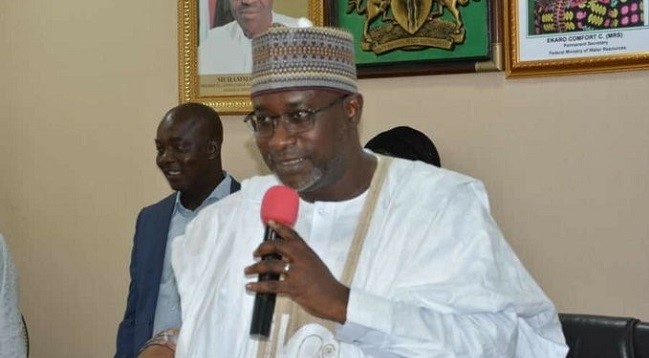Minister of Water Resources, Mr Suileman Adamu, has said that additional nine million Nigerians now have access to potable water.

He stated this at the official launch of the 2019 Water supply, Sanitation and Hygiene, national outcome routing mapping (WASH-NORM) on Tuesday, November 10, 2020 in Abuja.
According to him, the percentage of the population with access to basic water supply services has steadily increased from 68 per cent in 2018 to 70 per cent in 2019.
The minister explained that WASH-NORM survey, however, showed a decrease in access to hygiene services between 2018 and 2019.
“On access to sanitation, indicators across the country show a slight improvement as 44 per cent of the population was found to have access to basic sanitation services in 2019 compared to 42 per cent in 2018.
“The number of people practicing open defecation has marginally changed from 24 per cent in 2018 to 23 per cent in 2019,” he said.
Adamu said that the WASH-NORM was an annual survey that examined the status of Water supply, Sanitation and Hygiene services across the country.
He added that the survey was borne out of the need for comprehensive data on WASH for effective monitoring of the progress the country was making towards achieving sustainable development goals target of 6.1 and 6.2
“In the wake of COVID-19 pandemic, we have seen that the gaps in hand washing should immediately be seen as a major public health issue.
“In the light of the current WASH status, stronger high-level commitments with policy initiatives based on evidence-informed interventions to close the gaps in access to WASH services are needed,” he added.
He, however, stated that the challenges remained sustaining the commitments made at the national level, efficiently and sustainably domesticating them at the sub- national levels and across line ministries where implementation takes place to ensure Nigeria achieves its WASH goals.
He commended the efforts of the development partners who, he said, worked tirelessly to make NORM 11 report a reality, including the National Bereau of statistics, UNICEF, AfDB and the world bank
Mrs Didi -Walson Jack, Permanent Secretary, Ministry of Water Resources, in her remarks, said that progress over the past decade showed that the targets for WASH were not adequately tracked due to paucity of data which subsequently hinders appropriate planning and execution of policies and programmes.
Mr Benson Ajisegiri, speaking on behalf of the Permanent Secretary, said the SDGs presented the most ambitious targets for water supply, sanitation and hygiene, as water is inextricably linked to many other sustainable development outcomes.
“It is in recognition of this enormous responsibility that the Ministry in collaboration with National Bureau of Statistics and UNICEF has established the WASH National Outcome Routine Mapping (WASH-NORM) in 2018.
He added that the objective is to make available comprehensive and qualitative data for planning, priority setting, resource mobilization and other critical decision-making support in the WASH sector.
By Patricia Amogu
